Mark Barenberg
Professor of Law
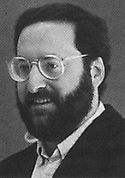
The Law Faculties of Leiden University, the University of Amsterdam and Columbia University in the City of New
York announce that the thirty-sixth Summer Program in American Law will be offered at Leiden University from
July 5 through July 31, 1998.
Since 1963 these summer courses are held alternately at the Leiden Law School and at the Amsterdam Law School and are designed to provide a general introduction to the American legal system with emphasis on areas of particular interest to European lawyers.
Preface Introduction Curriculum Class Schedule Faculty Enrollment
Go west, young man! Once upon a time
(not in the west, of course, but in the
east), this slogan was introduced to
stimulate young Americans to pick up
their things and move towards the
western frontier. Nowadays, this slogan
is more likely to raise all sorts of
interesting questions, particularly
between smart lawyers. Think, for
instance, about the a contrario
reasoning: may a young man also go
east? And what about the equality of the
sexes: is a young woman also welcome
in the west, respectively the east? But let
me not get too lawyerish in this short
preface. After all, I only use the slogan
because it summarizes, at least
partially, what the Leyden-Amsterdam-
Columbia Summer Program in
American Law is all about. You, the
reader of this brochure, whether young
or old, man or woman, are being
offered a unique opportunity to study a
legal system from - for most of us - the
west, i.e., the American legal system.
On the other hand - and very
conveniently so -, while your mind is
travelling westwards, your body is
permitted to stay in the east.
The Leyden-Amsterdam-Columbia
Summer Program in American Law
started in 1963, has been organised ever
since and is therefore, in 1998, in its
36th year. For more than a generation
now, each month of July a group of professors from the Columbia
University School of Law, situated in
New York City, travels to Leiden or
Amsterdam to teach courses on
American law. Both the contents of
these courses and the teaching method
used are the "all-American way". As
such, both contents and teaching method
will be new and fascinating for you. In
four weeks you will become acquainted
with a selection of interesting and
important fields of American law.
Moreover, you will (be forced to) get
used to the so-called Socratic method:
each day the instructor will assign a
bunch of cases and materials to be
studied for next day, and next day the
instructor will call upon you or your
neighbour to discuss the assignments in
class. So be prepared! And do not
complain that I did not warn you!
After a day or a week of hard work
there must be an opportunity to relax.
The Summer Program takes care of that
too. Various excursions in and outside
Leiden will be organised, during
weekdays and in the weekends. And
when nothing is on the program and the
assignments have been studied, you will
form a small group with a few other
participants to discover what Leiden has
to offer by way of terraces, disco's and
beaches. Living there myself, I may add
that there is quite a lot to discover.
This preface is not meant as yet another
piece of advertisement, either for the
Summer Program or for the City of
Leyden. The rest of this brochure
should be sufficiently tantalizing to
convince you that participation is the
thing to do and that your money will be
invested well. Speaking of money, the
Summer Program would not have
achieved the age of 36 without the
sponsors mentioned in this brochure.
The Board of Directors is very grateful
for this financial support. But, as we all
know, there is never enough money.
Therefore, the Board hopes that other
sponsors will join the Summer
Program, in particular the alumni of the
Summer Program. Alumni are, after
all, the perfect witnesses of the Summer
Program's success. In this you can
believe me, because I am an alumnus
myself.
One last word: should you, the reader
of this brochure, not be interested in
our Summer Program - perhaps you
already booked a holiday in July or you are also a (sponsoring) alumnus and
read this preface before? - you know
better than to throw it away! Give it to
someone who might be interested. And
start spreading the news: the
registration for the Leiden Session 1998
has started.
Maurice V. Polak
Executive Director
Since 1963 the faculty of Columbia Law School, in cooperation
with our partners in the law faculties of Leiden and Amsterdam,
have offered this Summer Program in American Law to introduce
our legal system to students from the world over. We have
learned a great deal in thirty-five years about how to present a
combination of basic material and advanced legal analysis to
young lawyers from other systems. They, in turn, have taught us
a great deal about our craft of teaching and, through their
questions and discussions, about our law.
This coming summer my colleagues and I return to Leiden with
an extraordinary program of offerings. In addition to our
required introductions to constitutional law, civil litigation,
statutes and administrative practice, we will present a newly-
redesigned introduction to researching American law. This cour
se, which has been under development for several years and has
been refined through presentation in a variety of settings, offers
what we at Columbia believe is the most effective route to rapid
mastery of the materials of our law. Through explanatory lectures
and hands-on training we can afford students and practitioners
who need the ability to find US law a range of skills that we think
are available nowhere else in a short course. For those
considering an LLM degree in a US law school, whether at
Columbia or elsewhere, we believe these offerings provide an invaluable
foundation to make your LLM study more successful and
rewarding.
Along with this expanded basic curriculum, we will present a
wide range of elective courses exploring fast-developing areas of
US law. From the fundamentals of contracts law to the labor
relations system, from intellectual property to the legal revolution
sparked by the Internet, scholars studying and participating in
current legal change will be bringing you the newest
developments, and the context in which to understand them.
Students and young practitioners interested in these areas will find
both a comprehensive survey of US law as it stands, and also an
opportunity to discuss forthcoming developments with professors
who are among those best placed to observe and affect them.
One of the unique features of American legal education has
always been the give-and-take of classroom discussion. My
colleagues from the Columbia faculty volunteer to participate in
the Program because of the excitement it offers them as teachers,
giving them a chance to bring their style of class discussion to a
different and fascinating range of students. We urge you to come
to meet us in Leiden in July 1998, to be part of a Program that is
in its second generation of achieving extraordinary results, for
participants and faculty alike.
Eben Moglen
Executive Director
To assure a shared basic knowledge, Statutes, The U.S. Litigation System and Constitutional Law are compulsory courses for all participants.
In addition, each participant is required to enroll in at least three of the elective courses.
As the number of participants in an elective course may be limited, applicants are requested to list all available electives on the registration
form in order of their preference.
Statutes
Professor P.L. Strauss
This course will consider some
fundamental structural characteristics of
the American political and legal system
having particular importance for public
law. We will examine American
approaches to the materials of public
policy: statutes, regulations, and the
institutions
that create and administer them. Topics
will include Congress, the President and
the administrative agencies: the process
for forming statutes and regulations: and
current disputes about the proper
materials and techniques of
interpretation.
The U.S. Litigation System:
Institutions & Procedure
Professor Ph. Genty
An introduction to legal institutions and
processes; the skills necessary in the
professional use of case law and legislation. The sources and forms of Anglo-American law, the analysis and synthesis
of judicial precedents, the interpretation
of statutes, the coordination of judge-made and statute law and the uses of
legal reasoning.
Constitutional Law
Professor K. Thomas
An introduction to the constitutional system of the United States with an outline of American constitutional history. Included will be a discussion of the judicial function in constitutional cases, the division of power between the States and the National Government, and the limitations placed upon government power in order to protect such individual rights as the freedom of speech, press and religion, fair procedures in the administration of criminal justice, just treatment of racial minorities and equality in political representation.
Labor Law
Professor M. Barenberg
The course examines federal regulation
of private sector labor management
conflict, with particular focus on the
National Labor Regulations Act. Specific
topics include: the organization and
recognition of unions, collective
bargaining, the right to strike, and the
relationship of workers to their union. The
central aspects of the collective bargaining
regime in the private sector and under
federal labor statutes and the Constitution, including: the protection of
employee rights to organize unions: the
process of collective bargaining; the
scope of union and employer direct
action, including strikes, boycotts,
picketing, and lockouts; the
administration of the collective
bargaining agreement and the role of
labor arbitration; the relationship
between union and workers.
Examination of the leagl doctrine in
light of two broad questions: To what
extent does or should the law enhance
employee participation in workplace
decision making? Does the current labor
law regime effectively implemnet a
desirable model of workplace relations?
Contracts
Professor K. Parker
This course is an introduction to the
central themes of Amercian contract law
and a presentation of modern issues
affecting contracts in entertainment
industries with particular emphasis on
issues arising from developments in
technology (videos, electronic mail, CD
Rom, and cable television). Special
attention is paid to those aspects of
contract law that distinguish U.S.
contracts law from the commercial law
systems of Western Europe.
Intellectual Property
A. Haemmerli
This course introduces the leading
features of American intellectual
property law. Emphasis is placed on
copyright, with secondary consideration
of trademark and trade secret protection.
In addition to the traditional subjects of
concern, the course will consider the
application of the copyright regime to
the new technologies of communication,
as well as the international context in
which US intellectual property law now
functions.
Legal Research - Beginning to
Advanced Instruction in Finding U.S.
Law
K. McKeever
This course uses print and electronic
research practices to introduce
participants to the textual sources of
American law. Focusing on the
processes that produce statutes, case
reports and regulations, as well as their dissemination in print and electronic
forms, the course shows how to become a
proficient researcher in American legal
material. Students will learn the basic
tools of the practicing attorney and the
skills of finding and merging texts in
particular situations to provide an accurate
basis for analysis and decisionmaking.
The course will also review lawmaking
and publishing from a comparative
viewpoint, so that the distinctive
requirements of American legal research
can be emphasized.
Computer Networks: Legal Issues of
the Present & Future
Professor E. Moglen
This course considers the legal significance of the development of
computer-assisted communications, including the network of
computer networks known as the Internet. American law has
begun to adjust to conditions created by technological changes
that the rest of the world will experience in the next decade. The
goal here is to present the American experience, along with some
social theory helpful in understanding the relation between rapid
technological change and the legal system's response. Topics covered will include the law of encryption, secrecy
and anonymity; the effect of computer-assisted communication on
contracts rules and private international law; new challenges to
the viability of the intellectual property system; and the
application of competition law to the new technological
environment. No prior experience with the Internet is required,
but students will get a quick hands-on introduction to some of the
technology in question.
|
first week July 6 |
second week July 13 |
third week* July 20 |
fourth week** July 27 |
|
| 09.30 - 10.30 | Litigation | Litigation | Intellectual Property | Intellectual Property |
| 11.00 - 12.00 | Legal Research |
Legal Research |
Contracts | Contracts |
| LUNCH | ||||
| 2.00 - 3.00 | Statutes | Statutes | Constitutional Law | Constitutional Law |
| 3.30 - 4.30 | Labor Law | Labor Law | Computer Law | Computer Law |
Mark Barenberg
Professor of Law

B.A. Harvard, 1977; M.Sc., London
School of Economics, 1978; J.D.,
Harvard, 1982. Editor, Harvard Law
Review. Law clerk to Eugene H.
Nickerson, U.S. District Judge, Eastern
District of New york, 1982-1983.
Practiced in the areas of labor,
constitutional and international law at
the firm Rabinowitz, Boudin, Standard,
Krinsky & Lieberman. Joined the
Columbia faculty in 1987. Member,
Law and Society Association; Industrial
Relations Research Association.
Principle areas of interest are in labor
law, employment law, civil rights,
economic democracy, legal theory.
Publications include "The Political
Economy of the Wagner Act", Harvard
Law Review, 1993, and "Democracy and
Domination in Labor Law", Columbia
Law Review, 1994.
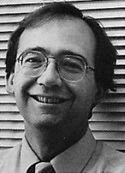
B.A., Colorado College, 1977; J.D.,
New York University, 1980. Worked as
an attorney at Prisoners' Legal Services of
New York, for the New York City
Department of Housing, Preservation and
Development, and for the Bedford-
Stuyvesant Community Legal Services
Corporation. Joined the faculty of
Brooklyn Law School in 1987, where he
taught legal writing, and a seminar on the
rights of prisoners. Was the top individual
winner of the 1986 Mayor's Volunteer
Service Award for his implementation of
the Rikers Island Parents' Legal Rights
Clinic. Joined the Columbia faculty in
1989. Has written on family law and
prisoners' rights.

A.B. Vassar College, summa cum laude; M.Sc. London Sch. of Econ., Int'l Relations; M.A., Ph.D. Harvard University (Government); J.D. Columbia, 1990. Formerly associated with Debevoise & Plimpton, 1990-1994, specializing in intellectual property in litigation and corporate transactions. Consultant to and Vice President for Public Policy and Corporate Issues, Chase Manhattan Bank, 1976-1988. Teaches Seminar on Intellectual Property, Seminar on Law & Theater. Publications include "Insecurity Interests: Where Intellectual Property and Commercial Law Collide," 96 Columbia Law Review 1645 (1996); "Comment: Of Contracts, Commerce, and Intellectual Property," 2 Columbia Journal of European Law 491 (Spring/Summer 1996); "Trademark Registration and Priority Under Section 44 of the U.S. Trademark Act," 15 European Intellectual Property Review 6 (June 1993).
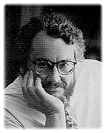
Kent McKeever has been the Director of
the Arthur W. Diamond Law Library of
the Columbia Law School since 1996.
Before that he had served as the Acting
Law Librarian, the Head of Technical
Services, and the International, Foreign,
and Comparative Law Librarian at
Columbia, and as a Reference Law
Librarian at the Fordham Law School
Library. He received his Juris Doctor and
his Masters in Library Science
simultaneously from Lousiana State
University in 1980. He has also served as
a Lecturer at the Columbia University
School of Library Service from 1986
through 1991, and has taught in a variety
of professional development programs
ranging from Fudan University in
Shanghai to a US AID program in
Almaty, Kazakhstan.
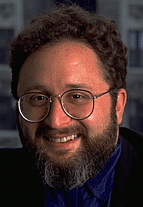 B.A., Swarthmore, 1980; J.D., Yale Law School, 1985; M.Phil., Yale,
1985; Ph.D. Yale University, 1993. Articles editor, Yale Law
Journal. Law clerk to Judge Edward Weinfeld, Southern District of
New York, 1985-1986, and to United States Supreme Court Justice
Thurgood Marshall, 1986-1987. Joined the Columbia Faculty in
1987. Executive Director, Leyden-Amsterdam-Columbia Summer Program in
American Law since 1995. Principal areas of interest: Anglo-American
legal history, constitutional law, computers and free expression, and
intellectual property. Publications include "The Invisible Barbeque",
Columbia Law Review, 1997; "The Privilege against Self-
Incrimination: Its Origins and Development" (with others), 1997;
"Linguistic Indeterminacy and the Rule of Law: On the Perils of
Misunderstanding" (with Zapf), Georgia Law Review, 1996;
"Holmes' Legacy and the New Constitutional History", Harvard Law
Review, 1995; "Taking the Fifth: Reconsidering the History of the
Privilege against Self-Incrimination", Michigan Law Review,
1994.
B.A., Swarthmore, 1980; J.D., Yale Law School, 1985; M.Phil., Yale,
1985; Ph.D. Yale University, 1993. Articles editor, Yale Law
Journal. Law clerk to Judge Edward Weinfeld, Southern District of
New York, 1985-1986, and to United States Supreme Court Justice
Thurgood Marshall, 1986-1987. Joined the Columbia Faculty in
1987. Executive Director, Leyden-Amsterdam-Columbia Summer Program in
American Law since 1995. Principal areas of interest: Anglo-American
legal history, constitutional law, computers and free expression, and
intellectual property. Publications include "The Invisible Barbeque",
Columbia Law Review, 1997; "The Privilege against Self-
Incrimination: Its Origins and Development" (with others), 1997;
"Linguistic Indeterminacy and the Rule of Law: On the Perils of
Misunderstanding" (with Zapf), Georgia Law Review, 1996;
"Holmes' Legacy and the New Constitutional History", Harvard Law
Review, 1995; "Taking the Fifth: Reconsidering the History of the
Privilege against Self-Incrimination", Michigan Law Review,
1994.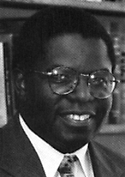
B.A., North Carolina (Chapel Hill),
1964; J.D., Howard University School
of Law, 1968. Was editor-in-chief of
the Howard Law Journal. Clerk for
Judge Spottswood W. Robinson III of
the U.S. Court of Appeals for the
District of Columbia, 1968-69; acting
professor, University of California
(Davis) Law School, 1969-72; associate
professor, Columbia University School
of Law, 1972-75; Professor 1975-
present. Special areas of interest:
remedies, contracts, Jazz Roots: The
Laws the Slaves Made; music industry
contracts; Volunteer Lawyers for the
Arts. Executive committee board
member, The City Club of New York;
member of the following: Society of
American Law Teachers; Law and
Society Association; The Lawyers
Guild; Committee for Fairness in
Banking and Finance; National Rainbow
Coalition; African-American Historical
and Genealogical Association.
Publications include Modern Judicial
Remedies (1975).
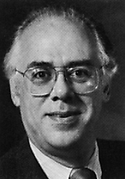
B.A., Harvard, 1961; LL.B., Yale, 1964.
Was editor-in-chief of the Yale Law
Journal. Was law clerk to Chief David
Bazelon, U.S. Court of Appeals for the
District of Columbia Circuit; and to
Justice William J. Brennan, Jr. of the
U.S. Surpreme Court. From 1966 to
1968, taught criminal law at the Law
School of the Haile Selassie I University
in Ethiopia. From 1968 to 1971, was
assistant to the Sollicitor General of the
United States, preparing briefs and
arguing cases before the Surpreme Court.
Joined the Columbia faculty in 1971.
From 1975 to 1977 was on leave to be
general counsel of the U.S. Nuclear
Regulatory Commission. Publications
include "An Introduction to Administrative
Justice in the United States", 1989;
"Gellhorn & Byse's Administrative Law:
Cases and Comments" (with Rakoff,
Schotland, and Farina), 1995;
"Adminstrative Law Problems" (with Verkuil), 1995; and numerous law review
articles. Principal fields of teaching
interest: administrative law, constitutional
law, legal education and legal methods.
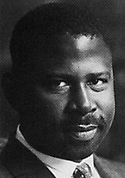
Kendall Thomas
Professor of Law
B.A., Yale, 1978; J.D., 1982. Joined the
Columbia faculty in 1984. Principle areas
of interest: constitutional law, theory
and history, law and sexuality, and
critical race theory.
Admission Requirements
Eligible for the Summer Program are law
graduates, who are professionally active in
the practice of law, industry, commerce,
government, international organizations or
related activities. Advanced undergraduate
law students may be admitted in
exceptional cases.
Applications for admission and scholar-
ships are invited before April 30th, 1998
to:
Leiden University, Faculty of Law
Columbia Summer Program
Attn. Mrs. B. Zaaijer
Hugo de Grootstraat 27
2311 XK Leiden, The Netherlands
fax: +31.71.5277600
e-mail: jfsacsc@law.leidenuniv.nl
English
Proficiency in English is required of all
participants. Classes will be conducted in
English, and participants will be called
upon in class to discuss the materials they
have studied.
In describing in your application your
schooling and proficiency in the English
language, you are requested to be as
specific as possible and to give a frank
evaluation of your ability to study and discuss American legal materials. Your
objectivity in this regard will avoid subsequent disappointment. Having passed the
TOEFL-test is one of the ways in which
you can indicate your proficiency in English.
Classes
Participants will receive due notice of any
changes in the curriculum that may appear
necessary. Each participant is required to
take courses in Statutes, Constitutional
Law and the U.S. Litigation System and at
least three additional courses. Ten hours
of classroom discussion are scheduled for
each course. Participants are obliged to
attend all classes for the courses for which
they have registered. Adequate preparation
is expected of each participant. Upon
completion of the Program, a certificate of
attendance will be issued to all participants
who have met these requirements.
Attendance
Attendance of classes is compulsory.
Failure to attend classes will result in
withdrawal of the right to receive the
certificate, at the discretion of the Board
of Directors.
Materials
Study materials will be distributed upon
registration on Sunday July 5, 1998.
In most courses, participants will be
provided with casebooks as used in
American Law Schools. In some
courses, mimeographed materials will be
distributed.
Preliminary reading
Participants are advised to read A.
Farnsworth, An Introduction to the legal
System of the United States, before
attending the Program.
Reading room and libraries
At the faculty building, where all
classes will be held, a special reading
room is available to all participants.
Participants may consult the American
law collection.
Expenses
Fee
The fee of 3000 Dutch guilders covers
tuition, study materials (one book of
about 150 printed pages for each of the
six courses), and all administrative expenses, including those of the extracurricular activities and the farewell
dinner. However, meals and lodgings
are charged separately. Undergraduate
law students pay a reduced fee of 1500
Dutch guilders.
Within one week after receipt of a formal notice of admission, the applicant
must remit the fee of 3000 (or 1500)
Dutch guilders to the account (number:
56 61 83 528) ABN-AMRO Bank,
Breestraat 81, Leiden. The remittance
should state: "fee Columbia Summer
Program 1998". Payment for tuition fee
and/or lodging can on no account be refunded.
Lodgings
All participants reside in student houses in
Leiden. For telephone numbers and detailed addresses, please refer to the list
distributed to participants. A price of
about 325 Dutch guilders is charged for
the duration of the Summer Course. A
hotel room can be catered for at
considerably higher costs.
Meals
On days on which classes are given, all
participants are expected to attend the hot
luncheons at 12.15 p.m. The restaurant
location will be announced in due course.
The price of each luncheon is about 25
Dutch guilders. Breakfast and evening meals will not be provided.
The total amount charged for tuition, lunches and lodging will be approximately
3825 Dutch guilders (students 2325,- ).
Scholarships
A limited number of scholarships is available for participants unable to raise the
necessary funds on their own or with the
help of employer, family or friends. The
scholarship may cover: a) Fees b) Lodgings c) Meals or d) combinations of
these, but not travel or personal expenses. A limited number of extra scholarships is available for participants from
countries with rigid currency restrictions.
When applying for a scholarship, please
indicate the absolute minimum amount
necessary to enable you to participate.
Exceptional circumstances which might
have a bearing on the scholarship
awarding should be stated on the admission form.
Moreover, please note that students from
certain countries (e.g. Germany) may
apply for scholarships in accordance with
arrangements between their respective
governments and the government of The
Netherlands. In such cases applicants must
address themselves directly to the
appropriate authorities of their own country.
Hans Smit Scholarship
In honor of Hans Smit, who initiated the
Leyden-Amsterdam-Columbia Summer
Program in American Law in 1963, a
special scholarship has been established.
Each year one promising participant will
be selected during the Program.
The Hans Smit Scholarship covers
tuition, lodging, meals, and pocket
money.
Administrative matters
Arrival and registration
It is imperative that all participants
arrive on Sunday, July 5, for the
purpose of registration and allocation of
housing, between 12.00 - 6.00 p.m. The
location of the registration desk will be
announced in due course. In the evening from 8.00 p.m. onwards
an informal gathering will take place for
the participants, the Directors of the
Summer Program, faculty members and
staff. All participants are requested to
attend this meeting.
Inaugural session
The inaugural session will take place on
Monday, July 6, 1998, from 10.00 -
11.00 a.m. The inaugural session will be
followed by a reception for participants,
faculty members, and invited guests.
Extra Curricular activities
(Subject to change)
Saturday, July 11 Excursion
Friday, July 17 Excursion
Wednesday, July 22 Moot
Court
Saturday, July 25 Excursion
Friday, July 31 Farewell
Directors of the Leiden Session
During the Program Professor Polak
may be consulted by special appointment
to be made through his secretary, tel.
071-5277421.
Professor Moglen may be consulted
before July 2nd 1998 or during the
Program after his lectures on all matters
concerning the instructional part of the
Program at: jfsacsc@law.leidenuniv.nl
Alumni Association
The Amsterdam session of 1997 marked
the 35th anniversary of the Program.
During those years we have established a
special relationship with more than 1,500 past
participants, now living and working
throughout Europe and the world. In
preparation for the Program's second
generation, we formed an Alumni
Association. This Association will help
participants keep in touch with one
another and with the Program.
Information can be obtained via e-mail at:
jfsacsc@law.leidenuniv.nl
Financial Support
We are most fortunate to have enjoyed, in increasing measure, the financial support of Dutch law firms. Their gifts introduced in the
Netherlands a new form of sponsorship, which, traditionally, is one of the most important means of financing legal education in the United
States.
The Dutch contributing law firms in 1997
were:
Barents & Krans
Trenité van Doorne
Stibbe Simont Donahan Duhot
Pels Rijcken & Droogleever Fortuijn
Boekel de Nerée
Loeff Claeys Verbeke
The financial support of many Dutch companies, foundations and the Ministry of Justice enables us to continue this Program successfully. We
most gratefully acknowledge the support given to the 1997 Program by the following:
M.H. Bregstein Stichting
Rabobank Nederland
Metaalcompagnie Brabant
Fortunately, many firms also offered us support for the 1998 session. At the time of printing, the list was not yet completed. We will print a
complete list in next year's brochure.
1999 Amsterdam session
For information regarding the 1999 Amsterdam session, please refer to:
University of Amsterdam, Faculty of Law
Columbia Summer Program
Attn. Mrs. M. Nelissen
P.O.Box 1030
1000 BA Amsterdam
tel. +31.20.5253439
fax. +31.20.5253495
email: Nelissen@sara.nl
Leiden University, Faculty of Law
Columbia Summer Program
Attn. Mrs. B. Zaaijer
Hugo de Grootstraat 27
2311 XK Leiden, the Netherlands
tel. +31.71.5277632
fax: +31.71.5277600
email: jfsacsc@law.leidenuniv.nl
Executive Directors
M.V. Polak, Professor of Law
Leiden University
E. Moglen, Professor of Law
Columbia University
Coordinator
Mrs. B. Zaaijer
Board of Directors
E.A. Alkema (Leiden)
M.V. Polak (Leiden)
C. van Raad (Leiden)
Th.M. de Boer (Amsterdam)
L.H.A.J.M. Quant (Amsterdam)
J.W. Zwemmer (Amsterdam)
C.J. Berger (Columbia)
G.A. Bermann (Columbia)
E. Moglen (Columbia)